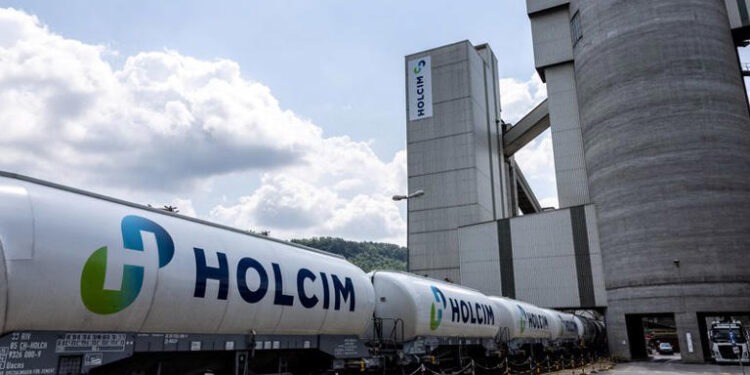President Bola Tinubu’s recent three-day state visit to France marked a significant achievement in strengthening economic ties between Nigeria and France.
The visit saw the formal inauguration of Zenith Bank’s operations in France and the signing of key agreements aimed at fostering long-term collaboration in critical sectors, including infrastructure, energy, agriculture, and solid minerals.
France is one of Nigeria’s key European trading partners, with French companies investing in sectors such as oil, infrastructure, and telecommunications.
The cultural exchange between the two countries is also notable, with many Nigerians studying in France and both nations actively promoting arts and education.
Key highlights from the visit
1) Zenith Bank formally inaugurated its operations in France.
2) UBA Group signed an agreement to commence operations in Paris.
3) Letter of Intent signed between the Nigerian government and the French Development Agency (AFD) on long-term support for Nigeria’s energy access and transition, sustainable agriculture, and food security.
4) MoU signed between the Nigerian government, the Ministry of Solid Minerals Development, and the French government to develop joint projects focused on diversifying and promoting the critical minerals value chain in both countries
5) Nigeria and France committed to enhancing collaboration in infrastructure, healthcare, transportation, the agricultural value chain, renewable energy, and human capital development
UBA Group signed an agreement to commence operations in Paris
- United Bank for Africa (UBA) signed a key agreement during President Bola Tinubu’s state visit to France, marking a major step in its global expansion.
- The agreement, signed by UBA Group Chairman Tony Elumelu and French Finance Minister Antoine Armand, ensures UBA’s full banking operations in France.
- Elumelu highlighted that this move strengthens UBA’s commitment to offering seamless banking services not only in Africa but also to French and European customers engaging with Africa.
“Expanding into France is a natural progression, with Paris serving as our European Union hub, as we continue to bring Africa and the world together, through innovative financial solutions. Paris will join London, New York, and Dubai, as a critical component of our unique global network,” Elumelu said
Zenith Bank formally inaugurated its operations in France
Zenith Bank made significant strides in expanding its operations in Europe during President Tinubu’s state visit to France.
The French market offers Zenith Bank the opportunity to deepen its international expansion, particularly in serving the growing needs of African businesses and investors in Europe.
The bank’s inauguration of its services in France marks a notable step for the Nigerian banking giant, solidifying its footprint in one of the world’s leading financial hubs.
Letter of Intent signed between the Nigerian and French Development Agency (AFD)
Also on President Tinubu’s state visit to France, a Letter of Intent was signed between Nigeria’s Minister of Finance, Wale Edun, and the French Development Agency (AFD) CEO, Remi Rioux.
- The agreement focuses on long-term collaboration to support Nigeria’s Renewed Hope Agenda. The partnership will facilitate funding for key areas such as infrastructure development, agriculture, food security, healthcare, and human capital development, including education in STEM fields.
- The AFD has committed to providing over €300 million in financial and technical assistance across all Nigerian regions, focusing on energy transition, sustainable agriculture, and the improvement of agro-logistic hubs.
The agreement further emphasizes the importance of removing fiscal barriers and ensuring efficient project implementation to enhance mutual trade between the two nations.
Nigeria and France to foster collaboration in the solid minerals sector
The Memorandum of Understanding (MoU) was signed between Nigeria and France to foster collaboration in the solid minerals sector.
- Dr Dele Alake, Nigeria’s Minister of Solid Minerals signed for Nigeria while the Inter-Ministerial delegate for Critical Ores and Metals of the Republic of France, Mr Benjamin Gallezot, signed on behalf of France.
- This partnership will focus on the development of critical minerals, such as lithium, cobalt, and nickel, which are key to advancing clean energy technologies. The two countries will also collaborate on research, training, and student exchanges to promote knowledge transfer.
- A critical component of the agreement is the commitment to sustainable mining activities, aimed at reducing the environmental impact of mining. The MoU includes co-financed joint extractive projects, ensuring diversification and security of critical minerals while supporting energy transition projects.
Additionally, the partnership aims to remediate over 2,000 abandoned mining pits across Nigeria, leveraging France’s expertise in sustainable mining.
Development of critical infrastructure and long-term support for agriculture and food security
President Bola Tinubu and French President Emmanuel Macron also signed two agreements in Paris focused on critical infrastructure development, including healthcare, transportation, and agricultural value chains, as well as renewable energy and human capital development.
- The partnership, backed by over 300 million Euros in diverse financial and technical assistance programs, will span all geopolitical zones in Nigeria.
- Both nations have committed to enhancing mutual trade, improving cross-border services, and eliminating fiscal barriers while protecting labor rights.
- The agreements reached during President Tinubu’s visit laid the foundation for a strong and lasting Nigeria-France collaboration, with far-reaching implications for both nations’ economic growth and development.









